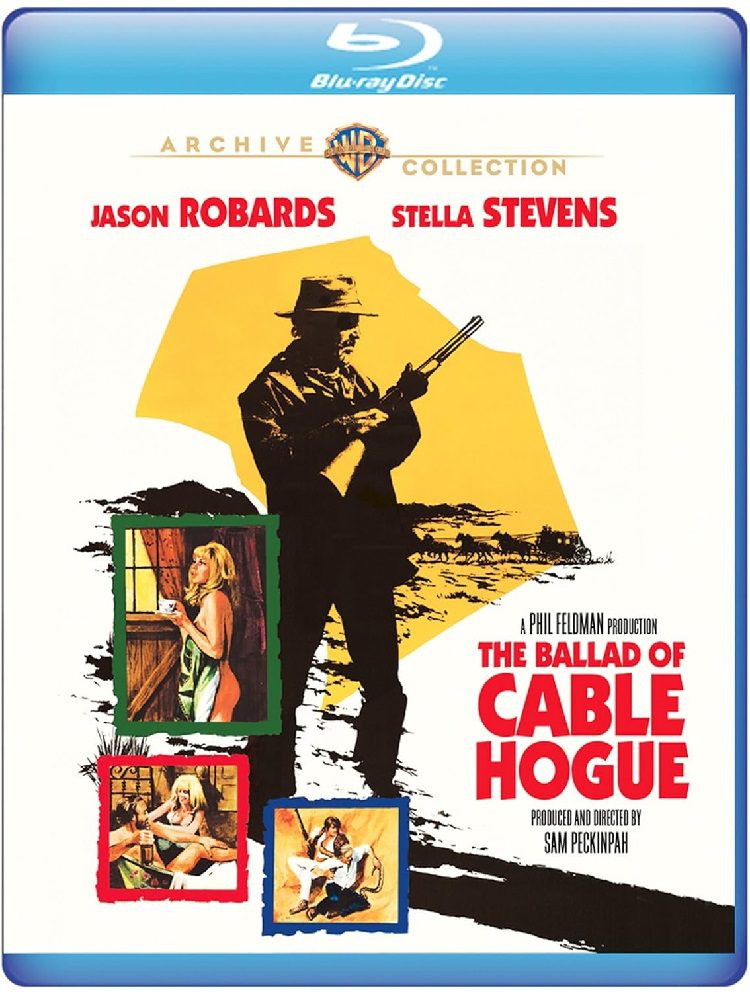
In between The Wild Bunch and Straw Dogs, two films that exemplified his work as a director, Sam Peckinpah made The Ballad of Cable Hogue, a lighthearted Western that has an interesting premise about a man noticing the inevitable change of the American West. Unfortunately, it suffers from a story that takes too long to develop and characters that don’t connect with the audience.
Bowen (Strother Martin) and Taggart (LQ Jones) strand former partner Cable Hogue (Jason Robards) in the Arizona desert. Cable goes without water for four days, but eventually stumbles upon a water hole. Though scoffed at by people in town, he takes possession of the property with the idea he can turn use the water hole to create a rest stop for weary travelers.
After three years, fate brings Bowen and Taggart to Cable’s rest stop. Seeing how well he has prospered, they try to rob him again, giving Cable a shot at revenge. When Cable sees an automobile pass by, he realizes the watering hole may not have a long future.
The script by John Crawford and Edmund Penney forces together relationships that make no sense. Cable meets Hildy (Stella Stevens), a beautiful blonde prostitute who inexplicably falls for him even after he doesn’t pay her for their first “session”. While I am sure the prospect of leaving that job would be a priority for anyone, that she would think a man who rips her off would have the means doesn’t seem plausible. Especially when the woman is as beautiful as Stevens and surely could have had her pick of any man. Out at his property, Cable is assisted by Reverend Joshua Sloane (David Warner), a lecherous degenerate who uses his position to take advantage of women, a needlessly gratuitous subplot that offers nothing to the overall story.
The video has been given a 1080p/MPEG-4 AVC encoded transfer displayed at an aspect ratio of 1.78:1 struck from a new 2k scan of the interpositive. The image offers rich earth tones and solid blacks. Film grain is apparent, which increases too much during the sandstorm and against the blue or gray skies. Fine texture detail is noticeable with a mix of sharpness and softness seen in objects. When scenes are sped up, some clarity is lost. The audio is available in DTS-HD MA 2.0. The dialogue is clear. The mix is slightly uneven as Jerry Goldsmith’s score is loud in the mix as are the gunshots.
Extras include a group commentary track by Nick Redman and three authors of Peckinpah books, Paul Seydor, Garner Simmons, and David Weddle in a group discussion about the film and director. “The Ladiest Damn’d Lady: An Afternoon with Actress Stella Stevens” (480i, 27 min) is a good interview as she talks about the early days of her career, working on this film, and with Peckinpah.
Although an impressive roster of talent worked on it, The Ballad of Cable Hogue is a bit underwhelming and would have been better served mining the original idea on which the story ended. For its fans, Warner Archive has created a satisfying high-definition presentation with interesting extras about the movie and its director.